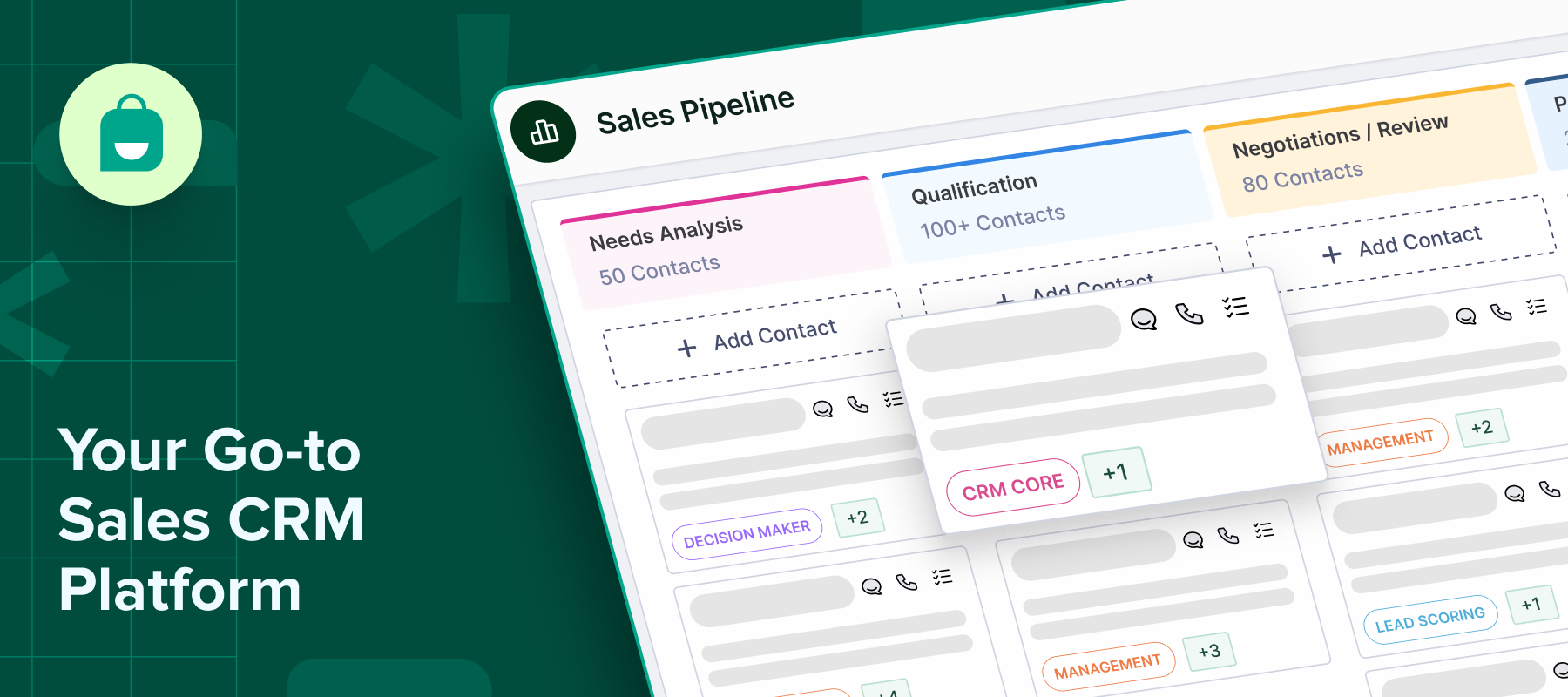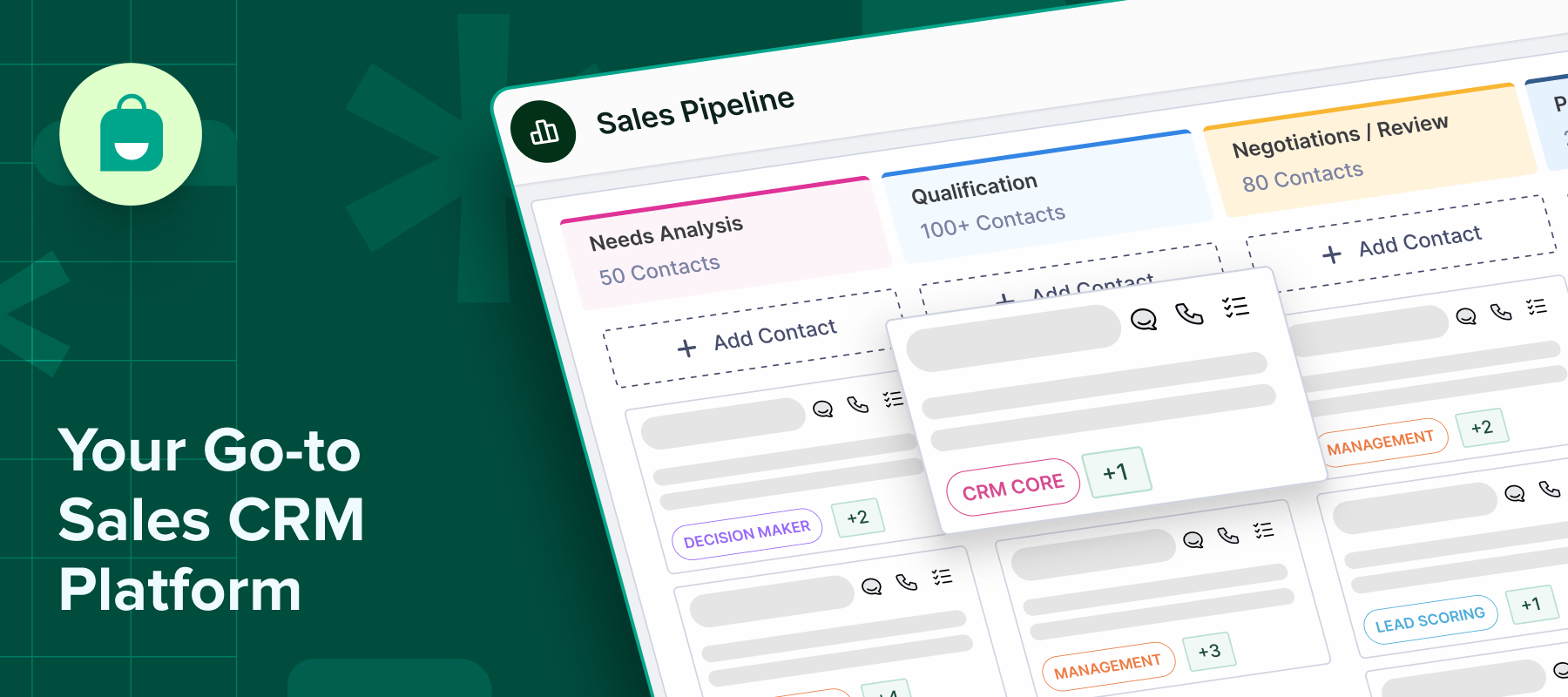A WhatsApp CRM helps businesses manage customer interactions directly through WhatsApp. It blends everyday messaging with tools like contact tracking, automation, and follow-ups to keep customer conversations organized and consistent.
Thanks to WhatsApp’s massive user base and real-time nature, its use as a CRM has surged, especially among small and mid-sized teams looking for fast, personal communication.
But turning WhatsApp into a scalable CRM isn’t without issues. From fragmented chats to limited team access and compliance concerns, the cracks show as you grow.
In this blog, we’ll look at the most common challenges businesses face while using WhatsApp as a Sales CRM and how you can overcome them.
Common Challenges in Using WhatsApp as a CRM
While WhatsApp offers convenience and familiarity, using it as a full-scale CRM brings several operational and strategic roadblocks that can slow teams down and create customer experience gaps.
Here are some common challenges in using WhatsApp as a CRM:
1. Data Privacy and Security Concerns
WhatsApp wasn’t originally built for enterprise-grade data handling. Sensitive customer information often lives in chat threads, which can be hard to control or secure, especially across multiple team members or devices.
Without proper encryption practices or access management, businesses risk data leaks, breaches, or non-compliance with regulations like GDPR. This not only affects trust but could also lead to heavy penalties.
2. Integration Complexities with Existing Systems
Most businesses already have ticketing, sales, analytics, or marketing tools, and WhatsApp doesn’t naturally plug into all of them.
Getting it to work seamlessly with CRMs like Salesforce, HubSpot, or ERP and helpdesk platforms often requires custom development or third-party tools. Poor integration can lead to broken workflows, duplicated effort, and a lack of visibility into customer data across platforms.
3. Scalability Issues
Handling a handful of chats is easy. However, once the message volume grows and multiple team members are involved, WhatsApp quickly shows its limits.
There’s no built-in way to assign chats, track progress, or manage teams efficiently. This can lead to missed messages, inconsistent follow-ups, and a scattered customer experience, hurting responsiveness and internal coordination.
4. Compliance with Messaging Policies
WhatsApp has strict rules about how and when you can message customers, especially with the Business API. Violating those rules can get your number blocked or flagged, even if unintentional.
Navigating these policies without proper guidance can be tricky, and non-compliance often interrupts communication, delays service, and frustrates customers.
5. Over-Reliance on a Single Communication Channel
Putting all your customer interactions into WhatsApp might seem efficient, but it creates a single point of failure.
If the platform experiences downtime, gets restricted, or your business account is suspended, you lose access to critical conversations. Plus, not every customer prefers WhatsApp, limiting your reach and flexibility when it comes to engagement.
6. Maintaining Personalization in Automated Interactions
Automation can save time, but it often comes at the cost of sounding robotic or impersonal. When customers receive generic replies, WhatsApp loses the trust and warmth it is known for.
Overusing templates or failing to personalize responses to customer context can make interactions feel cold and scripted. This affects customer satisfaction and retention, especially when they’re expecting human-like conversations.
Effective Strategies to Overcome These Challenges
Here are some practical strategies businesses can adopt to overcome these challenges with the Interakt WhatsApp CRM:
1. Implementing Robust Data Protection Measures
Start with clear access controls, device management, and data encryption. Use tools that offer audit logs, secure backups, and role-based permissions to ensure sensitive customer data is only accessible to the right people.
This protects your business from data breaches, builds customer trust, and ensures you’re on the right side of privacy regulations.
2. Utilizing Integration Tools and APIs
Instead of running WhatsApp in a silo, connect it with your existing CRM, helpdesk, and analytics platforms using integration tools or APIs like Interakt’s WhatsApp API.
Whether through native connectors or middleware platforms, integrations streamline your workflows and centralize your customer data. This reduces manual work, prevents information loss, and gives your team a complete view of each customer.
3. Leveraging AI and Automation for Scalability
Use chatbots and automated flows to handle FAQs, routing, and initial queries—freeing up your human agents for more complex issues. AI can also help prioritize messages and suggest relevant responses.
This improves response times, team efficiency, and ensures customers get faster resolutions even during peak hours.
4. Adhering to Compliance and Best Practices
Understand and respect WhatsApp’s business messaging policies. Stick to opt-in practices, use message templates properly, and track key metrics like delivery and read rates.
By staying compliant, you reduce the risk of account restrictions or bans, and maintain uninterrupted communication with your customers.
5. Diversifying Communication Channels
Don’t rely solely on WhatsApp, based on your customer preferences, complement it with other channels like email, SMS, live chat, or voice support.
A multichannel approach ensures you’re always reachable, reduces dependency risk, and helps tailor the experience to different customer segments.
6. Balancing Automation with Human Touch
Use automation to scale, but don’t forget to personalize. Mix in dynamic content, customer names, and contextual details even in automated replies. Hand off to human agents when needed, especially for sensitive or high-value conversations.
This keeps interactions warm and engaging, helping your brand feel personal, not robotic, even at scale.
Case Studies: Successful Implementation of WhatsApp CRM
Here are some of the successful implementations of WhatsApp CRM:
1. The Design Cart
The Design Cart successfully implemented Interakt’s WhatsApp CRM to improve sales and customer retention. With Interakt’s tools in place, they streamlined their communication and built more engaging, personalized customer experiences.
Over the last six months, the brand reported a 30% increase in retention and now attributes 20% of its total revenue to WhatsApp-driven interactions.
According to founder Apaar Gupta, Interakt helped them turn WhatsApp into more than a chat platform, it became a powerful engine for growth and long-term customer engagement.
2. Okhai
Okhai started using Interakt’s WhatsApp CRM to tackle cart abandonment and improve sales. With Interakt’s real-time communication tools, the team began tracking abandoned carts daily and instantly reaching out to customers.
This proactive engagement reduced cart abandonment by 60% and sales by 15% month over month.
CEO Manorath Dhillon noted that abandoned orders no longer go unnoticed; they act on them quickly and often convert them into successful sales within hours. With Interakt, Okhai turned a recurring pain point into a consistent revenue opportunity.
Conclusion
WhatsApp can be a powerful CRM tool, but only if it’s used the right way. Many of the challenges we’ve covered, from data security to scalability, tend to surface as your business grows.
That’s why it’s important to address them early, put clear processes in place, and ensure your team is aligned on how the platform should be used. Proper documentation, ongoing training, and the right technology stack can make a big difference.
If you’re ready to turn WhatsApp into a structured, high-performing CRM, Interakt’s WhatsApp CRM gives you the tools to do it right from day one.


